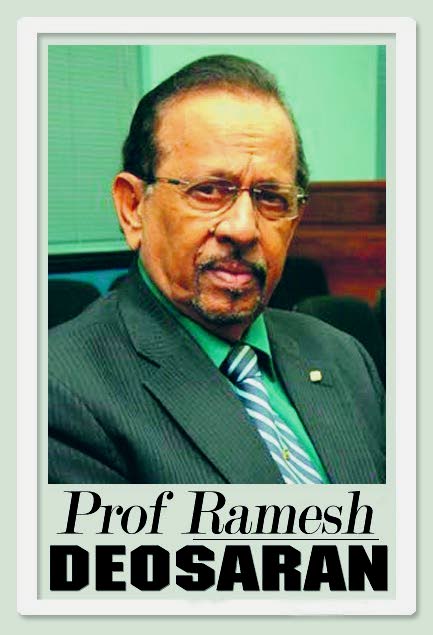Political perceptions

What do Darryl Smith, Faris Al-Rawi, Anil Roberts, Watson Duke, Kamla Persad-Bissessar, Dr Keith Rowley, Dr Roodal Moonilal, Stuart Young, Dr Tim Gopeesingh, Barry Padarath, Fitzgerald Hinds, Wade Mark, Colm Imbert, Rodney Charles, even US President Donald Trump and the late Dr Eric Williams have in common? As politicians they attract or attracted your perceptions about their capabilities, personality and character. In fact, all politicians, some more than others, attract perceptions. Perception in politics is a make or break matter.
Once a politician is branded, or perceived in one way, no matter what, that perception persists, sticks. In this psychological jungle, however, not all perceptions are wrong. John O’Halloran was perceived as corrupt. He was eventually proven to be so. Today, political perceptions of all kinds are floating around in the mass media, talk shows and political platforms. And the media doesn’t have the resources to sift the wheat from the chaff. The courts take too long.
Many times when a certain politician appears on TV, I have heard people exclaim: “Oh gosh, ah cyar bear to hear dat man.” Or about another politician, “what he talking about, he just as bad” etc. The coming elections, like all others here, will rest largely on perceptions far apart from the facts. In fact, it will be a war of perceptions, mainly negative perceptions across the political platforms and advertisements.
For example, which politician is a crook, which one using public office to fatten his or her pockets, who has a mall overseas, which one is lazy and incompetent, which one took bribes for school or road contracts, etc. And there is this most pessimistic underground one about which party “does ‘tief more than the odder one.” Politicians tend to exploit perceptions and prejudice.
Of course, there are positive perceptions but mainly from party insiders one to the other. For example: “Kamla is a loving, honest person,” says the UNC platform chairman. Or from the PNM platform: “Dr Rowley is a man of integrity, very hard-working.” Such perception-driven platitudes, however, do not cross party lines, politics being the polarizing phenomenon that it is. One of the most intriguing comments made before the last general elections came from Fitzgerald Hinds when he said he overheard a conversation that “Dr Rowley was too black to be Prime Minister.”
Without perceptions, however, we are robots. Perceptions and prejudice (pre-judgement) are very close friends. Perceptions feed prejudice and prejudice feeds perceptions. In fact, if you don’t like a politician, that politician, for you, can never do anything right. Perceptions flow from what is first sensed, that is from seeing, hearing, feeling, etc. But given the limitations of each sense, the derived perceptions cause us to live within only 50 per cent or less of reality. Perception is where the body meets the mind, incompletely. Psychiatrists use projective tests to show how your perceptions determine your personality.
The critical, sometimes dangerous, thing is how political perceptions determine voting behaviour. You first perceive then act on what you perceive. How and what you perceive about the UNC, PNM, COP, MSJ and the other ones will determine how you vote. And this, while the facts, few as they usually are in elections, will not necessarily matter. The mind is already made up. That is why much of the budget debate was so sterile. Every party-member presentation was stuck in attacking or defending, not trying to attract those citizens in the middle, independent-minded ones.
This, and more of it, are important for party strategists and advertising agencies to consider. Negative perceptions can be neutralised by psychological techniques. The point is that information alone is not enough to persuade which is what politics is all about. There is the matter, for example, of credibility. List five of our politicians today who have high credibility. See how your perception dictates your divided choices.
Perception operates as our psychological compass in trying to make quick sense of people and events we encounter. It occupies quite complex discussions in psychology textbooks. Even the Oxford Dictionary cannot do it justice. But ironically, it functions quite simply in the human mind. Our stereotyped perceptions seek to simplify the world, to help make meaning out of fragments of information. We see a shadow around the house, and we think we know who or what it is. We see a man with a long beard or a Rasta-style at our gate, and we think of calling the police. Perceptions play important in multi-ethnic politics. The stern test for the electorate now is how to find and put fact, truth, above rumour and propaganda most which feed political perceptions. Is this possible?


Comments
"Political perceptions"